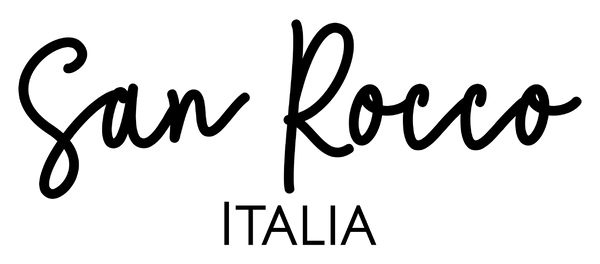
What is Ethical Fashion? Understanding Sustainable Style
Share
Fashion is not just about what we wear, it is about how each piece comes to exist. Brands push out millions of garments every day and the fashion industry is linked to 10% of the world’s carbon emissions, equal to more than all international flights and maritime shipping combined. Most shoppers expect style or low cost but there is a radical movement that turns this old thinking upside down. Ethical fashion is flipping the script by making every seam, dye, and label part of a bigger story about fairness and responsibility.
Table of Contents
- Defining Ethical Fashion: What It Means And Stands For
- The Importance Of Ethical Fashion In Today’s World
- How Ethical Fashion Works: Principles And Practices
- Key Concepts In Ethical Fashion: Fair Trade, Sustainability, And More
Quick Summary
| Takeaway | Explanation |
|---|---|
| Prioritise fair wages and conditions | Ensure all workers in the fashion supply chain receive fair compensation and work in safe environments. |
| Choose sustainable materials | Select fabrics that are organic, recycled, and produced with minimal environmental impact. |
| Support transparency in manufacturing | Demand clear information about supply chains and production practices to ensure ethical standards are met. |
| Embrace fair trade principles | Advocate for fair labour practices, gender equality, and worker rights to create a more just fashion industry. |
| Invest in circular and sustainable design | Focus on clothing that is long-lasting, recyclable, and designed to reduce resource consumption throughout its lifecycle. |
Defining Ethical Fashion: What It Means and Stands For
Ethical fashion represents a transformative approach to clothing production and consumption that prioritizes human dignity, environmental sustainability, and transparent supply chains. Beyond simply creating beautiful garments, this philosophy challenges traditional fashion industry practices by considering the broader social and ecological implications of every textile produced.
The Core Principles of Ethical Fashion
At its heart, ethical fashion is about recognizing the profound interconnectedness between clothing creation and global systems of labour, environment, and social responsibility. Research from the Universit Cattolica del Sacro Cuore defines it as a holistic practice that encompasses economic, social, and environmental considerations.
Key principles of ethical fashion include:
- Ensuring fair wages and safe working conditions for all workers
- Minimizing environmental impact through sustainable production methods
- Using responsibly sourced materials with low carbon footprints
- Promoting transparency in manufacturing processes
- Supporting artisan communities and traditional craftsmanship
Ethical Fashion Beyond Aesthetics
Ethical fashion transcends mere visual appeal. It represents a fundamental reimagining of how clothing is conceived, produced, and consumed. This approach challenges consumers to view fashion not as disposable trend-driven commodities, but as meaningful artifacts with complex human and environmental stories.
By choosing ethically produced clothing, individuals become active participants in a global movement that values human rights, environmental preservation, and sustainable economic practices. The goal is not just to look good, but to contribute to a more just and responsible global fashion ecosystem.
The Importance of Ethical Fashion in Today’s World
In an era of escalating environmental challenges and global economic disparities, ethical fashion emerges as a powerful mechanism for driving meaningful social and ecological transformation. The fashion industry represents more than aesthetic expression it is a complex global system with profound implications for human rights, environmental sustainability, and economic justice.
Global Impact of Fashion Consumption
Research from Cornell University reveals the critical importance of consumer choices in reshaping industrial practices. The fashion sector currently accounts for approximately 10% of global carbon emissions and consumes substantial water resources, making individual purchasing decisions extraordinarily consequential.
This table summarises the main environmental challenges associated with conventional fashion as described in the article, providing a clear overview of the sector's key sustainability concerns.
| Challenge | Description |
|---|---|
| Water Consumption | Large volumes required for textile production |
| Chemical Pollution | Harmful chemicals used and released during manufacturing processes |
| Textile Waste | Significant quantities of clothing ending up in landfills |
| Carbon Emissions | Notable emissions produced throughout global supply chains |
| Deforestation | Loss of forests due to raw material extraction |
Key environmental challenges in the fashion industry include:
- Excessive water consumption in textile production
- High levels of chemical pollution from manufacturing processes
- Significant textile waste ending in landfills
- Substantial carbon emissions from global supply chains
- Deforestation linked to raw material extraction
Economic and Social Dimensions
Ethical fashion addresses systemic inequalities by prioritizing fair labour practices and supporting sustainable economic models. By demanding transparency and ethical standards, consumers can directly challenge exploitative practices that have long characterised global textile production.
Moreover, ethical fashion represents an investment in human dignity. It champions workers rights, ensures fair compensation, and creates opportunities for marginalised communities. The movement transforms fashion from a purely consumptive activity into a mechanism for social empowerment and sustainable development.
How Ethical Fashion Works: Principles and Practices
Ethical fashion operates through a comprehensive approach that transforms traditional clothing production into a responsible, transparent, and sustainable process. This holistic model integrates environmental consciousness, social justice, and economic fairness at every stage of textile creation and distribution.
Material Selection and Sourcing
Research from the Sustainable Clothing and Ethical Fashion course emphasizes the critical importance of thoughtful material selection. Ethical fashion prioritizes materials that minimise environmental impact and support sustainable agricultural and manufacturing practices.
Key considerations in material sourcing include:
- Using organic and recycled fabrics
- Selecting materials with low water consumption
- Avoiding synthetic fibres that release microplastics
- Supporting regenerative agricultural practices
- Choosing materials from certified sustainable sources
Production and Manufacturing Ethics
Ethical fashion fundamentally reimagines manufacturing processes to prioritize worker welfare and environmental protection. This means implementing rigorous standards that guarantee safe working conditions, fair compensation, and minimal ecological disruption.
Manufacturers committed to ethical practices focus on:
- Providing living wages to workers
- Ensuring safe and regulated working environments
- Implementing transparent supply chain management
- Reducing energy consumption and waste
- Supporting local and artisanal production techniques
By integrating these principles, ethical fashion creates a model of production that respects both human dignity and environmental sustainability, transforming clothing from a consumable commodity into a statement of global responsibility.
Key Concepts in Ethical Fashion: Fair Trade, Sustainability, and More
Ethical fashion encompasses a complex network of interconnected principles that extend far beyond aesthetic considerations. These principles represent a comprehensive approach to clothing production that prioritizes human welfare, environmental protection, and economic justice.
Understanding Fair Trade in Fashion
The World Fashion Summit defines fair trade as a critical mechanism for ensuring economic equity and social dignity within global textile supply chains. This concept guarantees that workers receive fair compensation, operate in safe environments, and have access to fundamental labour rights.
Key aspects of fair trade in fashion include:
![]()
- Ensuring living wages for workers
- Prohibiting child and forced labour
- Supporting safe and regulated working conditions
- Promoting gender equality in workplace settings
- Enabling worker collective bargaining rights
Sustainability: Beyond Environmental Considerations
Sustainability in ethical fashion represents a holistic approach that addresses ecological impact while simultaneously considering social and economic dimensions. This comprehensive perspective recognizes that true sustainability requires balancing environmental preservation with human economic needs.
Critical sustainability strategies encompass:
- Reducing carbon emissions in production processes
- Implementing circular design principles
- Minimizing water and resource consumption
- Developing recyclable and biodegradable textiles
- Creating long lasting, versatile clothing designs
By integrating these interconnected principles, ethical fashion transforms clothing production from a purely commercial activity into a powerful mechanism for global social and environmental transformation.

Discover Ethical Luxury That Truly Makes a Difference
Are you looking for timeless elegance without compromising on your values? The article explained how ethical fashion means supporting fair wages, protecting the environment, and celebrating craftsmanship. If you have ever worried about fast fashion’s impact and long for pieces that honour both people and planet, you will find real inspiration at San Rocco Italia.

Handcrafted in Italy by skilled artisans, our leather handbags and accessories are made from premium full-grain leather using ethical and traditional methods. Each product reflects the core principles of sustainability and social responsibility discussed in the article. Make a conscious style choice today and treat yourself to authentic quality that stands the test of time. Visit San Rocco Italia for a collection where your purchase truly makes a positive impact.
Frequently Asked Questions
What is ethical fashion?
Ethical fashion is a movement that prioritises human dignity, environmental sustainability, and transparency in clothing production and consumption. It challenges traditional practices by considering the broader social and ecological implications of textiles.
What are the core principles of ethical fashion?
The core principles include ensuring fair wages and safe working conditions, minimising environmental impact through sustainable practices, using responsibly sourced materials, and promoting transparency in manufacturing processes.
How does ethical fashion differ from fast fashion?
Ethical fashion focuses on sustainable practices, social responsibility, and long-lasting garments, whereas fast fashion prioritises quick production cycles, often leading to exploitation of workers and significant environmental harm.
The following table offers a concise comparison between Ethical Fashion and Fast Fashion, highlighting their primary differences as discussed in the article.
| Aspect | Ethical Fashion | Fast Fashion |
|---|---|---|
| Production Speed | Slower, prioritising quality and sustainability | Rapid, focused on trend cycles and volume |
| Worker Treatment | Ensures fair wages and safe working conditions | Often linked to worker exploitation and poor conditions |
| Environmental Impact | Minimises through sustainable practices and materials | High, including waste, emissions, and pollution |
| Transparency | Promotes clear supply chain information | Often lacks transparency in sourcing and manufacturing |
| Longevity of Garments | Designed to be long-lasting and durable | Frequently disposable and trend-based |
Why is ethical fashion important today?
Ethical fashion is crucial as it addresses current global challenges, such as environmental degradation and social inequality, by promoting responsible consumption and production that supports both people and the planet.


